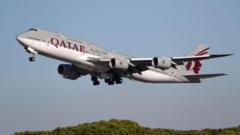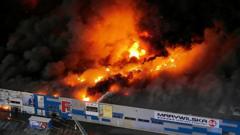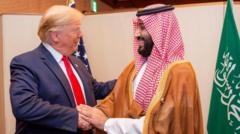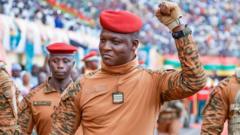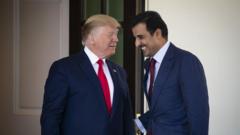In the wake of growing calls for a ceasefire, Zelensky expressed his readiness to meet with Putin to explore a resolution to the ongoing conflict, emphasizing the need to halt violence for effective diplomacy. After a recent summit in Kyiv, Western leaders have pushed for a 30-day pause in fighting, fueling hopes for a potential breakthrough in negotiations between the two nations.
Zelensky Welcomes Putin’s Offer for Direct Talks Amid Trump’s Call for Negotiations

Zelensky Welcomes Putin’s Offer for Direct Talks Amid Trump’s Call for Negotiations
Ukrainian President Volodymyr Zelensky has proposed a meeting with Russian President Vladimir Putin in Istanbul, echoing a demand from Donald Trump for Ukraine to engage in direct discussions with Russia.
Zelensky's proposal follows Trump’s public endorsement of immediate talks between Ukraine and Russia, aimed at assessing the possibility of peace. In a response to Putin's invitation for serious negotiations, Zelensky reiterated his conditions for a ceasefire, urging for a firm commitment before any dialogue could commence.
While Putin acknowledged the potential for a truce, he also mirrored Russia's stance about halting Western military aid prior to considering a ceasefire. The two champions of their respective nations have not had face-to-face discussions since the onset of the invasion in March 2022.
With escalating expectations for a resolution, both leaders stand at a critical juncture where the course of the conflict might prevail or subside, shaped by international pressures and demands for peace.
This ongoing situation represents both a moment of hope and a challenge, as global leaders watch closely to ascertain the impact of these potential negotiations on future military actions in the region.
While Putin acknowledged the potential for a truce, he also mirrored Russia's stance about halting Western military aid prior to considering a ceasefire. The two champions of their respective nations have not had face-to-face discussions since the onset of the invasion in March 2022.
With escalating expectations for a resolution, both leaders stand at a critical juncture where the course of the conflict might prevail or subside, shaped by international pressures and demands for peace.
This ongoing situation represents both a moment of hope and a challenge, as global leaders watch closely to ascertain the impact of these potential negotiations on future military actions in the region.







